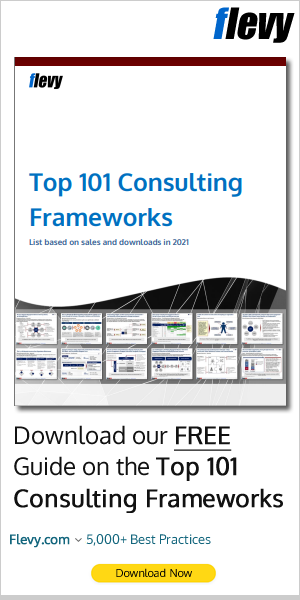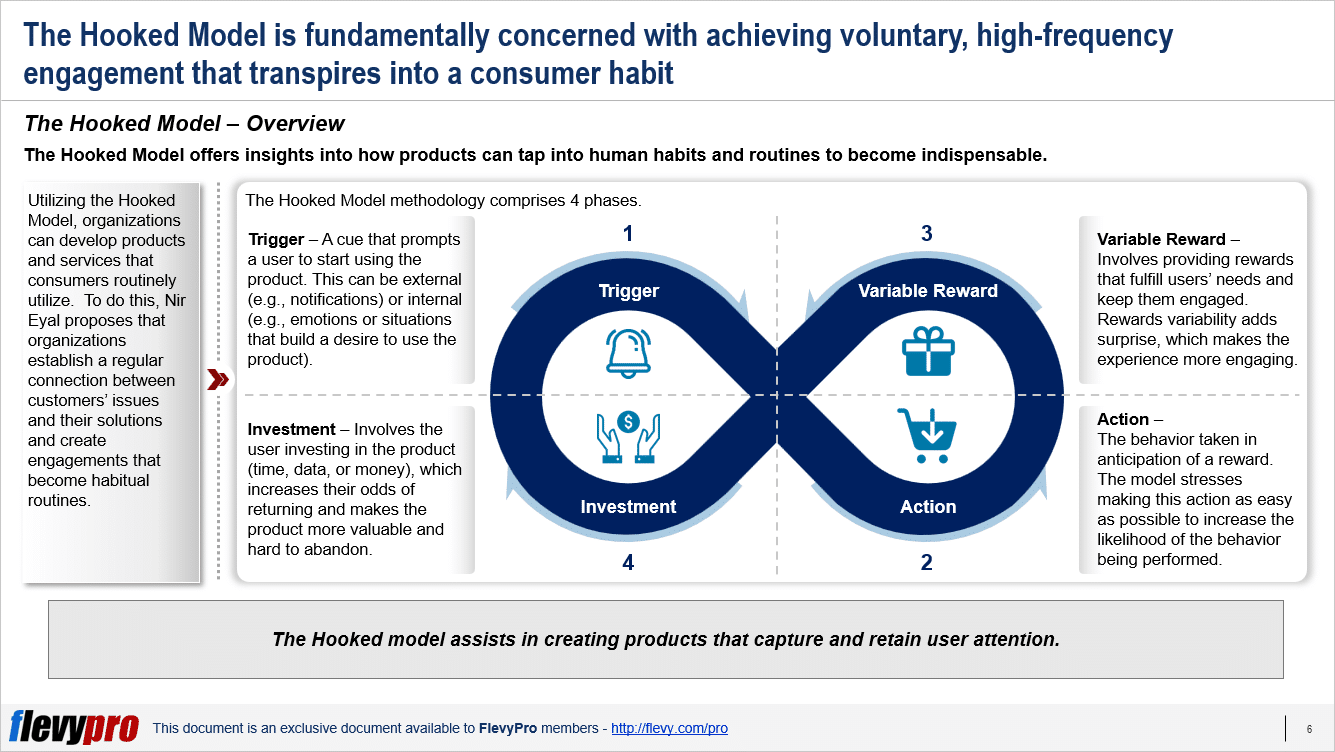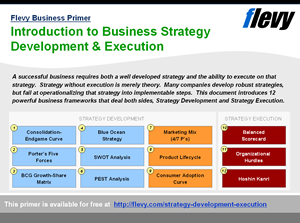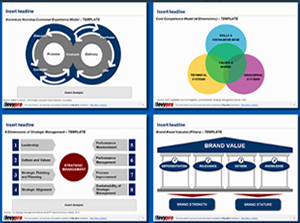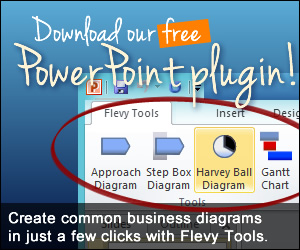Editor's Note: Take a look at our featured best practice, Digital Transformation Strategy (145-slide PowerPoint presentation). Digital Transformation is being embraced by organizations across most industries, as the role of technology shifts from being a business enabler to a business driver. This has only been accelerated by the COVID-19 global pandemic. Thus, to remain competitive and outcompete in today's fast paced, [read more]
The Hooked Model
Also, if you are interested in becoming an expert on Customer-Centric Design (CCD), take a look at Flevy's Customer-Centric Design (CCD) Frameworks offering here. This is a curated collection of best practice frameworks based on the thought leadership of leading consulting firms, academics, and recognized subject matter experts. By learning and applying these concepts, you can you stay ahead of the curve. Full details here.
* * * *
Marketers have always been curious about why some service or product offerings seem irresistibly appealing while others fade into obscurity. In the past, the same phenomenon was at play that used to make people glued to their TV sets for hours, and today, this is what triggers us to check on our phones compulsively numerous times a day.
Nir Eyal, the author behind the bestseller “Hooked: How to Build Habit-Forming Products,” reveals that the most engaging products follow a blueprint known as “the Hooked Model.” Nir Eyal, with a background in both technology and psychology, drew upon years of research and insights into user behaviors to come up with the Hooked Model.
The model is designed to help technology companies create products tied to users’ emotions and daily habits that are engaging and habit-forming without relying on expensive advertising. The framework draws on elements from behavioral economics, psychology, and user experience design to provide a structured approach for creating engaging products.
The Hooked Model is fundamentally concerned with achieving voluntary, high-frequency engagement that transpires into an indispensable consumer habit. The Hooked framework creates products that users return to again and again, even without nudging them through advertisements.
Some of the key advantages of implementing the Hooked Model include:
- By creating a habit-forming product, companies ensure regular user engagement, which is vital for the product’s success and longevity in the market.
- Products that incorporate the model rely less on traditional advertising to attract users and rather grow organically through word-of-mouth and user recommendations.
- Habit-forming products encourage engagement, customer lifetime value, and revenue.
- A product that becomes part of users’ habits can be a significant differentiator.
- The data collected from regular user interactions is invaluable for improving the product, personalizing the experience, and making data-driven decisions for future developments.
- When users form habits around a product, they develop a sense of psychological ownership over it, which increases loyalty and makes them promote the product to others.
- It offers a strategic edge to pierce through the chaos, capture customer interest, and maintain it.
The Hooked Model methodology comprises 4 key phases.
- Trigger
- Action
- Variable Reward
- Investment
Let’s dive a bit deeper into the first two phases for now.
Trigger
A Trigger represents a cue that prompts a user to start using a product. Triggers may be external or internal. External triggers are cues from the product itself, such as an email, notification, a website link, or the application icon on a mobile device, utilized to initiate habit-forming behaviors. The external triggers tell the user what to do next and draw the user in from the outside.
The external triggers become internal triggers following repetition and association with emotions, eliciting a desire to utilize the product. These internal triggers eventually become a habit or daily routine. Internal triggers rely on users’ feelings and thoughts, leading them to use the product almost instinctively. These can be negative emotions (like boredom, loneliness, frustration, or stress) that the user seeks to alleviate through the use of the product.
Triggers are effectively designed when they are able to seamlessly integrate into the users’ lives, prompting them to initiate the desired behavior without conscious thought. The ultimate goal is for internal triggers to take over, making the use of the product a natural and habitual response to specific internal states or situations.
Action
The Action phase involves the user performing a simple behavior in anticipation of a reward. The model stresses making this action as easy as possible to increase the likelihood of the behavior being performed. This phase leverages the basic human tendency to seek pleasure and avoid pain, tapping into the user’s motivation to take action. The step relies on the principle that the less effort required to take an action, the more likely a user is to do it.
Interested in learning more about the phases of the Hooked Model? You can download an editable PowerPoint presentation on Hooked Model here on the Flevy documents marketplace.
Do You Find Value in This Framework?
You can download in-depth presentations on this and hundreds of similar business frameworks from the FlevyPro Library. FlevyPro is trusted and utilized by 1000s of management consultants and corporate executives.
For even more best practices available on Flevy, have a look at our top 100 lists:

Want to Achieve Excellence in Customer-Centric Design (CCD)?
Gain the knowledge and develop the expertise to become an expert in Customer-Centric Design (CCD). Our frameworks are based on the thought leadership of leading consulting firms, academics, and recognized subject matter experts. Click here for full details.
In the modern Digital Age, advances in technology and communication, combined with the explosive growth in data information, have given rise to a more empowered global customer. Recent economic and political events highlight the need for organizations to understand how consumers view the world and the most important attributes for their purchasing decisions.
Thus, increasingly more organizations are seeking to invest and focus on Customer-centric Design. A clear understanding of customer needs and behaviors across the organization will help drive profitable growth strategies and provide the confidence to invest in opportunities at a time when staying within budget can be extremely difficult.
Learn about our Customer-Centric Design (CCD) Best Practice Frameworks here.
Readers of This Article Are Interested in These Resources

|
|
32-slide PowerPoint presentation
|
|
22-slide PowerPoint presentation
| |||
About Mark Bridges
Mark Bridges is a Senior Director of Strategy at Flevy. Flevy is your go-to resource for best practices in business management, covering management topics from Strategic Planning to Operational Excellence to Digital Transformation (view full list here). Learn how the Fortune 100 and global consulting firms do it. Improve the growth and efficiency of your organization by leveraging Flevy's library of best practice methodologies and templates. Prior to Flevy, Mark worked as an Associate at McKinsey & Co. and holds an MBA from the Booth School of Business at the University of Chicago. You can connect with Mark on LinkedIn here.
Top 10 Recommended Documents on Customer Experience
» View more resources Customer Experience here.
» View the Top 100 Best Practices on Flevy.
